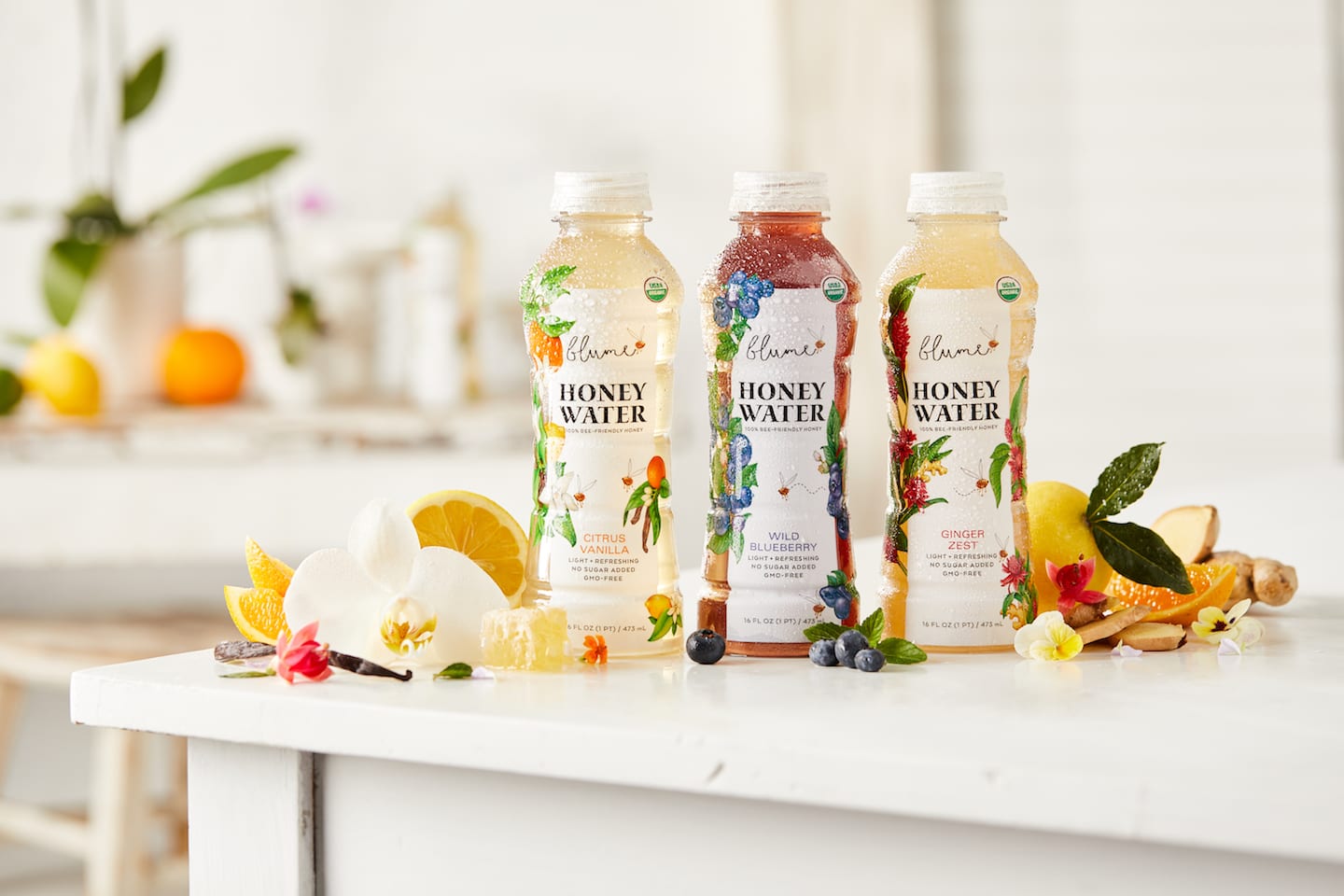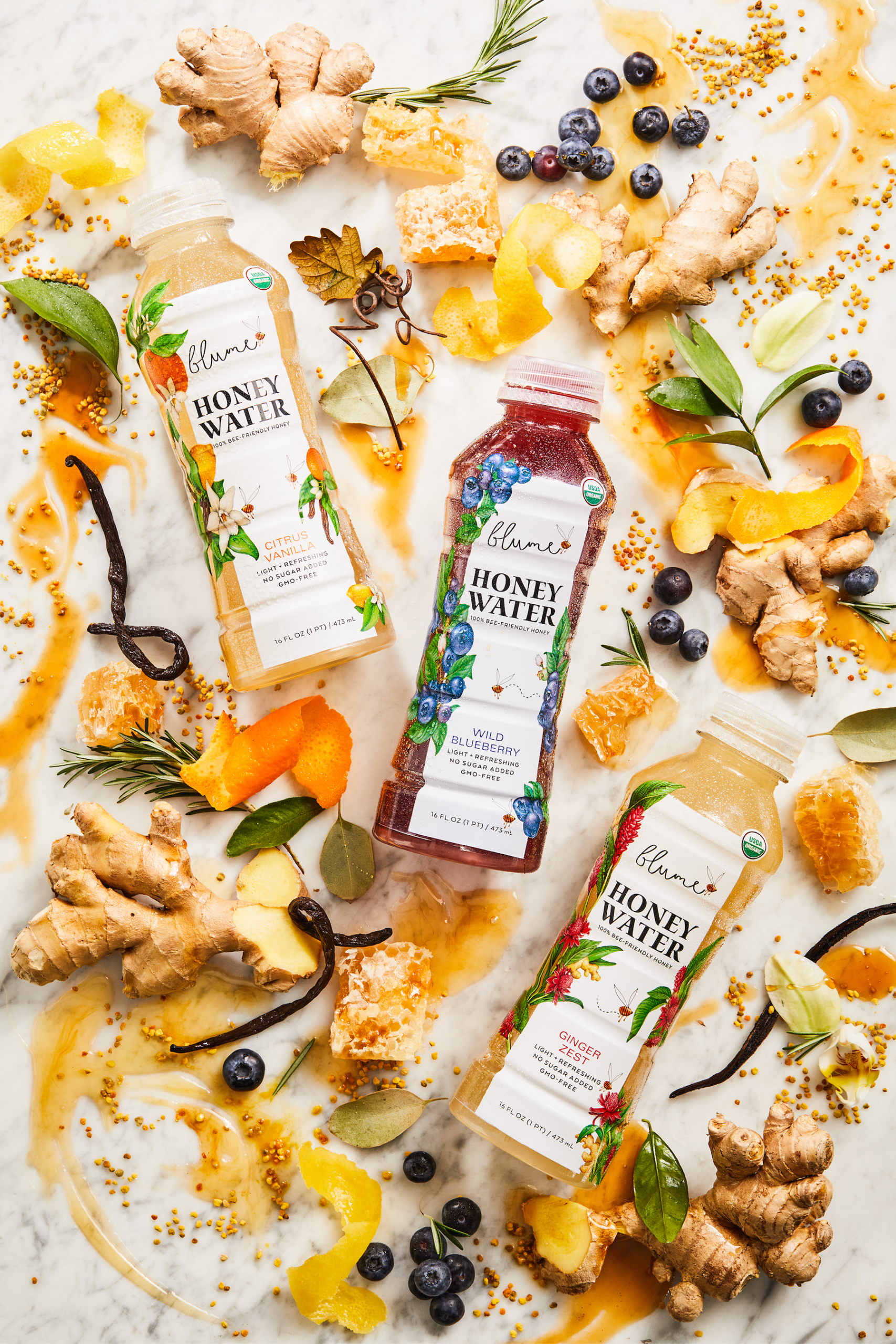
Honey. It’s sticky sweet, golden, and absolutely delicious.
Whether it’s drizzled overtop oatmeal, baked into a cake, or stirred into your favorite drink, it’s a kitchen staple for good reason.
But what is it about honey that makes it so special?
To get a better understanding of this liquid gold, we reached out to the founder of Blume Honey Water, Michele Meloy Burchfield, to find out just why she chose to center her business around honey.
Perhaps the most obvious question is, why not just use sugar to sweeten your drinks? Honey, after all, doesn’t come cheap.
Michele’s reasoning for this was simple. “Honey has flavor and sugar is just sweet.” She added, “Currently, we source our honey from the Yucatan in Mexico. It is a Jungle Wildflower Blossom honey that has a beautiful aroma and just the right amount of sweetness for our waters.”
Which got me curious, with over 300 types of honey available in the U.S. alone, how do you begin to choose just one?
“Have fun and taste many varieties!” Burchfield added, “[Honey] is like wine—each has its own taste and aromas.”
Burchfield also noted that although the flavor is important, if you want to support bees in your area and ensure your honey is pure, buy from local beekeepers, whenever possible.
But choosing honey over sugar goes beyond its flavor and aroma. Honey is a healthier choice overall.
Burchfield explained, “Although honey consists of glucose and fructose, much like cane sugar, it acts differently in our bodies, providing steady energy. And unlike regular sugar, honey that our bodies don’t use right away is converted into glycogen as an energy reserve. Unused sugar, meanwhile, is converted to fat.”
One of the reasons honey provides continuous energy is because it is lower on the glycemic index, meaning that it doesn’t create sharp spikes in blood sugar. It’s also sweeter than sugar, which means you can use less of it—and it is also higher in calories and nutrients.

It’s important to remember that without bees, we wouldn’t have this amazing natural sweetener. That’s why Burchfield has made it one of Blume’s missions to get every one of their employees up to speed on how these master pollinators work. Every employee and business partner must participate in their Be Blume Certified training.
“Not only does this provide our team members great insight,” Burchfield explained, “it also allows all of us the ability to walk and talk our mission.”
But according to Burchfield, supporting bees doesn’t have to be complicated—it just requires a little knowledge and awareness.
“Regenerative gardening is an amazing topic, and I encourage all of us to learn more about it. Use organic seeds, pesticides and fertilizers.” She also recommended choosing plants from local nurseries that are bee friendly and neonicotinoid-free—a harmful pesticide.
If you want to learn more about honey or bees, Blume Honey Water’s website offers resources on beekeeping, gardening, recipes, an online shop, and much more. Check them out here: www.blumehoneywater.com.

Great article! Very informative about bees and honey. Really enjoy the Blume Hone Water drink, so refreshing and a real pick me up during the day. All the flavors are great and I even mix a little adult beverage in the evening for cocktails that everyone loves.
Glad you enjoyed it! We’re big fans too. But it’s also so interesting to learn about honey does for the body. Good things all around. <3
Awsome Information. It’s very helpful for us, Thank you So much for this info.
Pure Honey Online
Thanks for sharing nice post